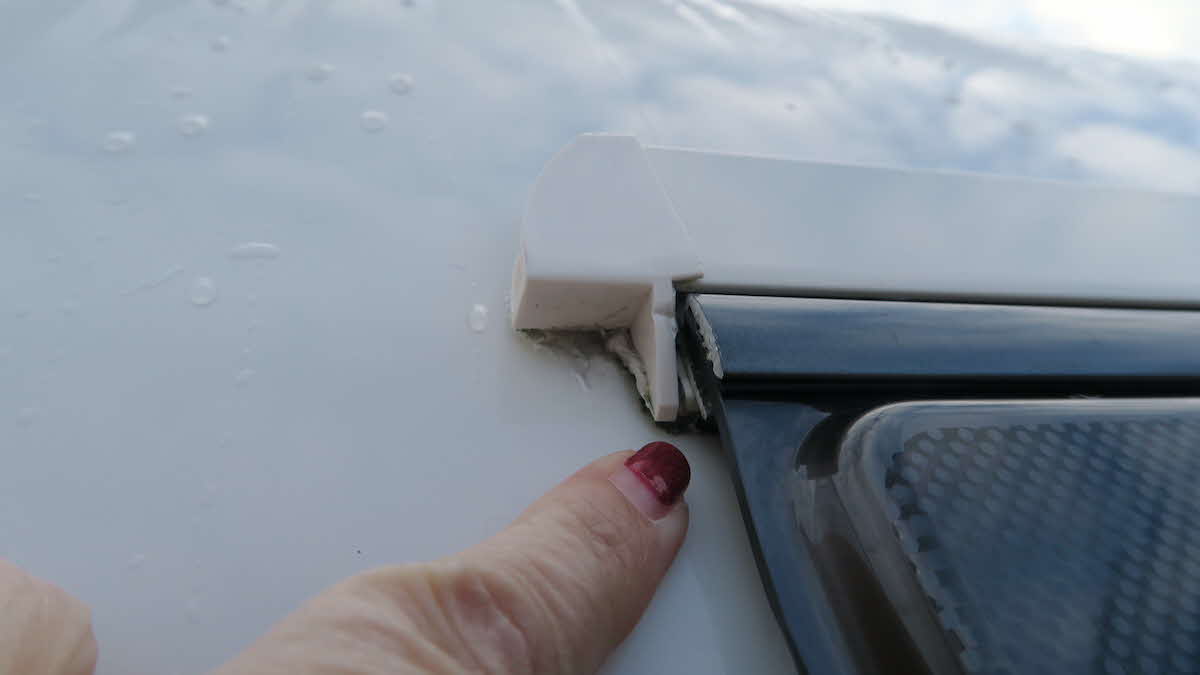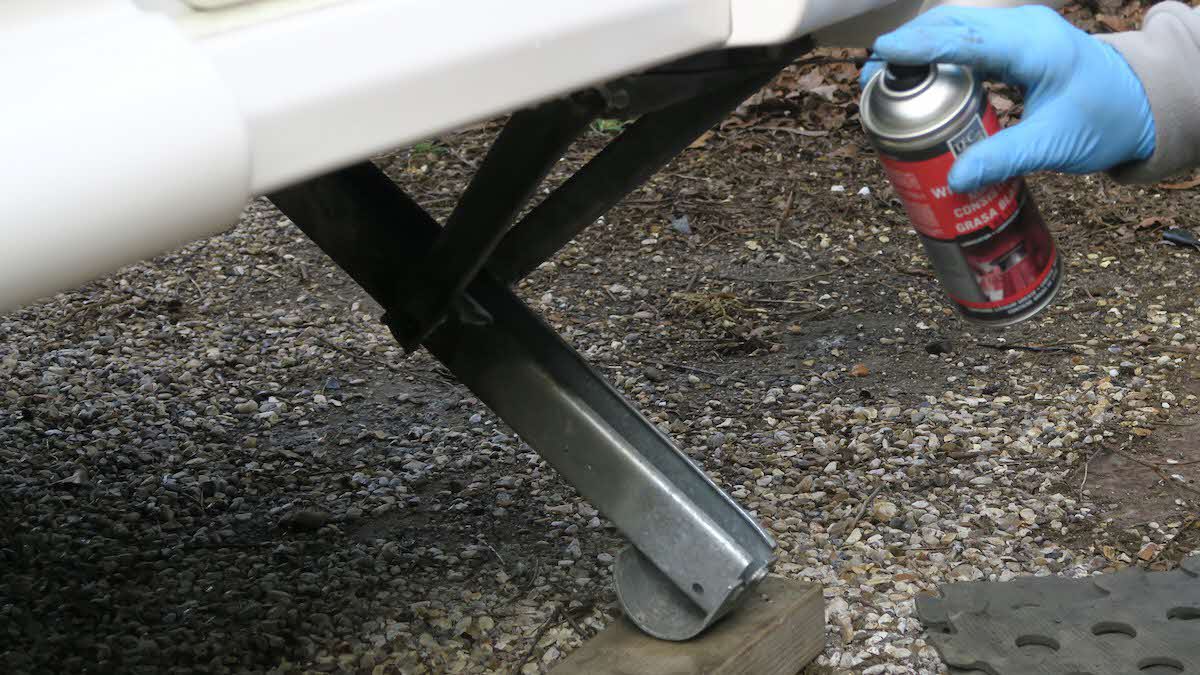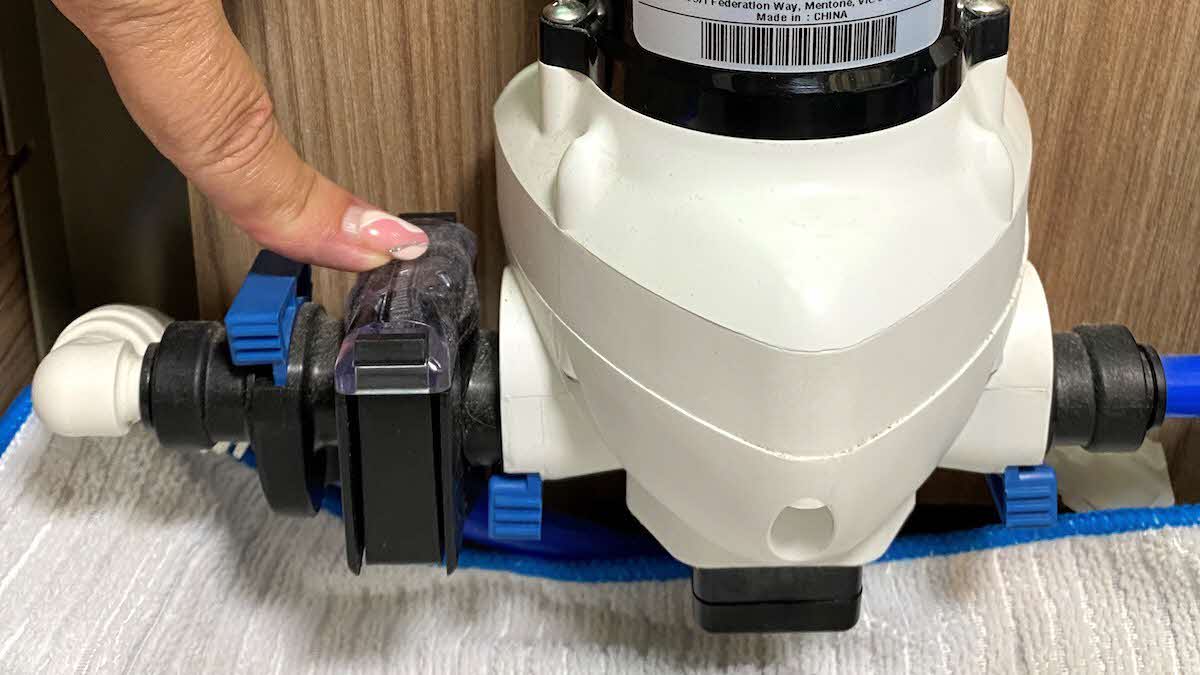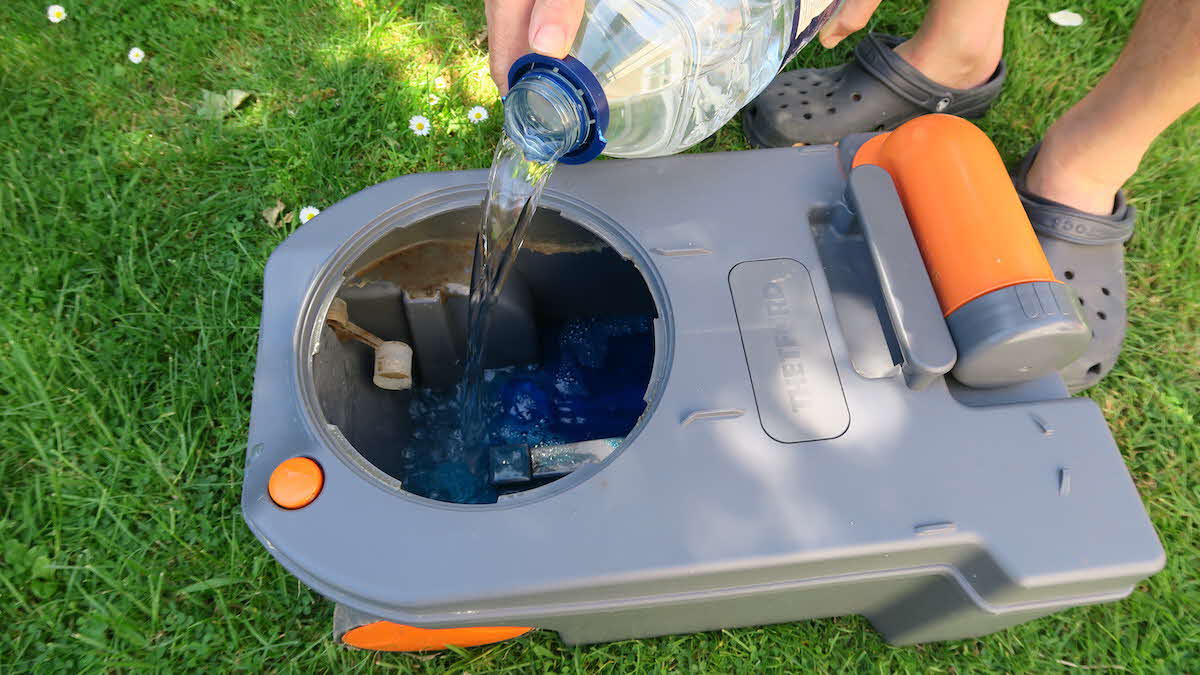Handy tips and advice
Our guides and insider tips will get you started whether you're in a caravan, motorhome, campervan or tent.
Get startedSammy Faircloth looks at some of the easier practical tasks we can undertake to keep our ’vans in good shape
There are some things your average caravan or motorhome owner should leave to the experts – most electricity and gas-related jobs should be carried out by a qualified engineer, for example. However, all of us can perform basic safety inspections before every trip, such as checking tyre pressures and torque readings, and there are a few relatively straightforward tasks that you may also feel comfortable undertaking. Let’s take a look...

Regularly check that gutters are clear of debris, particularly if your leisure vehicle is parked next to trees. Check the condition of the sealant, as over time it dries out and goes brittle (this can lead to cracking and allow damp to seep through). Once this occurs, it’s time to have it professionally resealed.
It is important to keep the electrical coupling plugs and their equivalent sockets (on a caravan and towcar respectively) clean to displace moisture, and prevent rust and corrosion. (Do your research as some sprays can cause damage to the plastic casing.) A product like Tri-Flow is ideal for this task and will keep the components clean and shiny for a long period after an application.

To keep corner steadies working smoothly, periodically remove old grease, clean the spindle with a wire brush and apply fresh grease, such as Castrol LM. It’s important not to apply large quantities as this will attract dust and grit. Instead, apply a thin film along the threaded spindle with a protected finger. If you’d prefer to keep your hands clean, white grease in an aerosol canister is an option.
A grinding noise coming from the towball is a tell-tale sign that the stabiliser friction pads are dirty or worn. The procedure for checking them was covered in the May 2023 issue of the magazine. Dirt and other contaminants can cause the pads to become shiny, which hinders their ability to grip the tow ball. If they are in reasonable condition, give them a clean using emery cloth.

If your caravan is fitted with a diaphragm pump, you will need to clean its water filter. First, ensure that the water system is drained down. Place a cloth underneath the filter to catch any residual water then, to unlatch it, pinch the two tabs. Soak in a mix of water and a product like Puriclean, using a toothbrush to help remove particles.
Skylights, their associated flyscreens and roof vents can become quite dirty from dust, dead insects and, occasionally, mould. Remove the flyscreen and either give it a brush down or soak it in a bowl of water. Make sure it is dry before reattaching. The fan blades on a roof vent can gather dust, so give them a wipe down with a damp cloth.

After a season of touring, the toilet cassette may need a refresh: odours can linger and, in hard water areas, limescale can develop. You can use a product such as Dometic Tank Cleaner to tackle this problem – simply add one tablet to five litres of water and pour the solution into the cassette. Leave for a minimum of eight hours and then drain – your cassette will look like new. You can also give the rubber lip seal a spray with a lubricant or rub a little olive oil into it.
The springs on interior roller blinds and flyscreens need to be tightened occasionally to prevent their recoil becoming sluggish. If the cassettes are directly fixed to the wall, the spring assembly can be accessed at one end, but if they are mounted hard against furniture, they will have to be detached in their entirety. When the end cap is removed, the spring will unroll further, but, once you have re-tightened, replacement of the cap over the spindle and remounting it in the cassette will prevent unravelling. Be prepared for some trial and error when adjusting a spring; if over-tightened, the blind can withdraw at frightening speed. You should also give the runners a spray with silicone spray or beeswax polish to help the blinds slide more smoothly.
This is simply an introduction to basic maintenance tasks – I’m sure that you can come up with many others. Don’t forget that your vehicle will need an annual habitation service, which should be carried out by a qualified workshop or mobile engineer – the Club recommends using members of the Approved Workshop Scheme (approvedworkshops.co.uk).